Jose Vilson's Blog, page 33
June 14, 2015
The Karen Fitzgibbons In Us [Scenarios USA]
Rebecca Carroll invited me to speak on elementary school teacher Karen Fitzgibbons and her comments about the incidents in McKinney, TX. Here’s an excerpt:
But, as a teacher who’s not only taught for 10 years, but who has done educational activism work for about seven of those years, I’ve observed the vitriolic responses of even using the word “race” except when I dissent on Race To The Top, President Obama’s educational mandate that included lifting charter school caps across states, increasing stakes for standardized testing, and using wayward data to evaluate and eliminate teachers. Yet, the other race, the one that implicates reform advocates and critics alike, touches a centuries-old nerve. We have yet to create school systems that genuinely assert agency for children of color (and this includes AAPI, Native American, and Latino students), and develops learning spaces for these stakeholders. While everyone struggles to catch a piece of the #BlackLivesMatter action, folks in the education space often lack the reflection and integrity to look in the mirror and say, “We’ve done wrong by them.”
Read more here and let me know what you think.
The post The Karen Fitzgibbons In Us [Scenarios USA] appeared first on The Jose Vilson.







June 8, 2015
Agents Of The State
“How many of you have a child that you believe in and no one else does?”
Seats shift.
“How many of you can relate to the children in front of you? How many of you have students who get thrown out of everyone else’s class but yours?”
Some people blink, some heads turn to the side, but the general assembly hums and huffs.
This is a Bronx auditorium where a coalition of conscious principals (headed by CASA principal Jamaal Bowman) dared have a race-centric education conference on Chancellor’s Day, NYC’s annual professional development day. As the only K-12 teacher on the featured panel, I found myself needing to push buttons for our audience, many of whom presumably get tired of getting talked at by outsiders.
“On the morning of the day after the Michael Brown decision came down, I set aside the Common Core and got to the heart of the matters. We as teachers do ourselves a disservice when we’re not willing to listen to the kids in front of us about these very issues.”
As I’m saying these things, I’m thinking about the position I currently sit in, with all these wonderful speaking engagements and opportunities and using those spaces to lift others. This might be my vision. Yet, the other, more onerous side of this argument is that I’m putting myself and my colleagues in danger by asking us to . Even with one steady foot in the classroom, our vociferous selves stand to lose our livelihoods, despite reformers’ “job for life” barbs. The idea that teachers can actually work with kids and not do things to them boils down to the question I’ve struggled with since the NYPD turned their backs to Mayor Bill de Blasio:
Are teachers agents of change or agents of the state?
This was no more poignant than when I spoke yesterday at the Boston Teachers’ Union’s professional development conference. When Paul Tritter, director of professional learning at the BTU, asked me to speak, he dropped a few facts that made me do a double take. I did not know, for instance, that this is the 40th anniversary of the Boston desegregation / busing efforts. The ensuing riots, white flight, and eventual disintegration in 2013, have led to a 90% student of color population in Boston Public Schools. Couple that with a teaching stuff that is 2/3rds white and the optics can be disconcerting for anyone vested in social justice.
As I was preparing for my presentation, then, I found myself needing to tell the audience about cultural competence and the idea of discomfort with their positions as educators. Discomfort is the means by which things change. Without that agita in our seats, we never reflect or see ways to improve our practice.
If we as educators are comfortable in our stations, the next question has to be whether students are(n’t).
The real status quo isn’t the antiquated schools with the rusty unions and curmudgeon teachers nor is it the hyperfocus on testing, standards, and charter schools as a winning formula. It’s the system that creates separate and unequal schooling for students all across the spectrum only exacerbated by the 1% influence upon them. Whenever we seek compliance for the sake of compliance or we use the words rigor to mean one thing (raising the bar) and not how it’s actually defined (hardship, torture), we subjugate. Whenever we embody the principles of the folks whose policies disproportionally affect our kids, we oppress.
Does that include me, a person of color from the neighborhoods my students grew up? Sometimes. That’s consciousness.
Much like anti-racist / sexist / homophobic work, if we aren’t engaged in shaking off the things that bind us down, we become complicit in it. The history of American education is bound together with the history of America, racism and all. It’s best we do this work discomforted, maladjusted, and riled up by social injustices.
The post Agents Of The State appeared first on The Jose Vilson.







June 6, 2015
What Jay Z Freestyled, Applied To Education Reform
Don’t ever follow the flow. Be the flow.
All of this, applied to education reform.
I woke up one morning to this Jay Z Tidal freestyle in my head, and some of the best ideas I’ve had all year came alive for me. I’m not sure what the future holds, but I’m almost certain it involves EduColor. I’m looking forward to the next evolution.
We gonna turn style, I ain’t your token teacher.
The post What Jay Z Freestyled, Applied To Education Reform appeared first on The Jose Vilson.







June 2, 2015
Much Ado About 20 Days Left [On Whatever Teaching We Have Left]
Don’t hold me accountable for the next 20 days, please. Pretty please.
I get it. Every day is an instructional day. Every day, I’m supposed to engage students, activate their minds, differentiate for all learners, and use multiple assessments to make sure my lesson plan got through to the students. I’ll hold myself to that until June 26th, and with luck, most of my students will too. After 10 years of teaching, I would prefer if people observed / dropped by / inspected / walked through my classroom anytime from September through May, but June? June is just not it.

I laugh because, much to the surprise of people living in their bubbles, the school year is almost over. Schools across the five boroughs have started the deluge of field trips, games, and celebration planning. The sunlight bursts through windows like
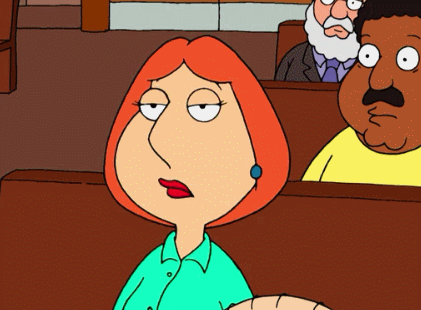
and you kinda wish the students were as enthusiastic about coming into the classroom as the heat has. The air conditioners are no help because the minute my door opens, the reminders that it’s 80° outside creeps in.
For my eighth graders, the warmth has also means worrying whether or not they’re graduating with the grades they want. For some, they’re content with just passing the 65 mark (even with my perpetual insistence that they should strive for more) while others want the hallowed grade of 100 (even with my perpetual insistence that they’re going to have to work harder to get it). Even the best-behaved students don’t want to deal with the adult standing in front of them. My stares aren’t working. My countdowns aren’t working as well. I wish it was just me, but … I won’t snitch. I’ll just say the magic wears off.
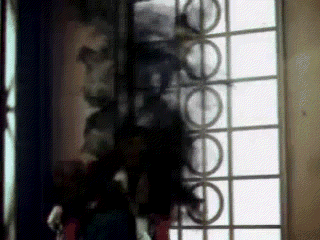
Of course, I’m perhaps weary of the day-to-day as well. My hands are still sore from grading stacks of end-of-the-year work, make-up work, “Oh, I thought I gave this to you” work, “No, you really should do this again because this ain’t your best” work, and “finefinefine my mom made me make this work up” work. I’ve called parents, given progress reports, and given (chance) to the umpteenth power to kids who others would yell “No excuses!” to. I didn’t cover every base, I’m sure, but alskamlsfi;anc. Alas.
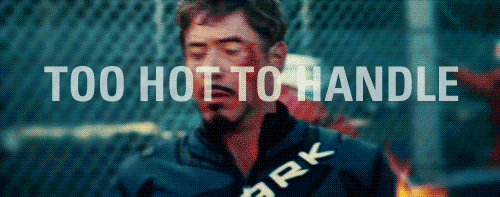
For educators like me, there’s no such thing as “time off,” just time away from being the character they’ve accepted in the classroom. I’m looking forward to putting fictional combinations of all these students in my next book since most of them are upset they’re not in This Is Not A Test. Which makes no sense because they were barely out of diapers when I finished the first manuscript, but I don’t mention that. For my sanity more than anything.
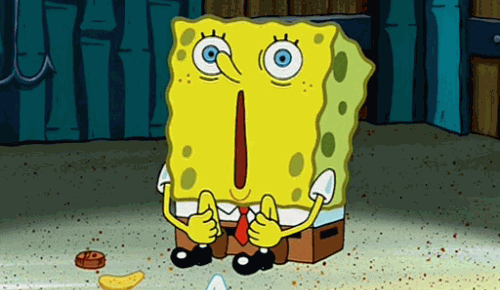
So we will be counting down. The last 20 days signals the opportunity for adults to be more human than underpaid robot. The objective is to leave students with great memories. The “Do Now” is to have some fun. The lesson is to look at all the other lessons learned from the year and hope they remember it for the next year. The conclusion is upon us, and maybe we can allow ourselves the chance to laugh when kids want to do their best impression of us.
Maybe.
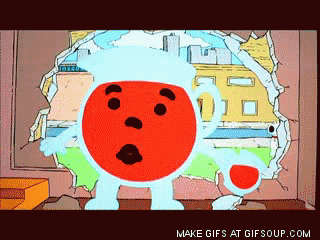
The post Much Ado About 20 Days Left [On Whatever Teaching We Have Left] appeared first on The Jose Vilson.







May 29, 2015
Speaking on the Criminalization of Black Youth
A few weeks ago, The New America Foundation had me and a few other luminaries (shout out to Nikole Hannah-Jones!) speak on the criminalization of Black youth in our schools. As the only classroom teacher, I felt passionately about throwing down the hammer whenever I got the mic, as you’ll see below. It’s worth the sitting in case you weren’t there. Just as awesome was that friends Sabrina Stevens and Aurelia Flores brought their babies and families to the packed house. So blessed.
Enjoy and let me know what you think!
The post Speaking on the Criminalization of Black Youth appeared first on The Jose Vilson.







May 22, 2015
Why Math Is A Social Justice Issue [Edutopia]
Read my latest entry at Edutopia, my posit that math is a social justice issue:
Even though Americans generally believe that math is the most important subject in school, students tend to drop out at higher rates when introduced to harder math and sciences. It seems the desire is there, but the skill and understanding are not. While there are a plethora of reasons for students to drop out, math always seems to come up as one of those levers with my former students.
In recent times, Andrew Hacker, Grant Wiggins, and Nicholson Baker have come for algebra’s neck, stipulating that advanced algebra need not be required for students. The argument goes, “If the students weren’t required to take anything above algebra, they wouldn’t drop out as often.” I agree to the extent that I would love for all my students to make it through high school without too much hassle. We have to reorganize the idea of completion and college readiness to assure that all students have an equitable chance at college or a career of their choosing.
Read more at Edutopia and let me know what you think!
The post Why Math Is A Social Justice Issue [Edutopia] appeared first on The Jose Vilson.







Stare Them In The Eyes
Before I continue, I’ve been nominated for the National Education Association’s Social Justice Award. If you’re an NEA / UFT member, please consider voting for me. Thank you! Voting ends on May 18th, 2015.
When John Norton, editor and writing guru, was having long conversations with me on Skype about the direction of my book, he often told me that the book would elevate my voice in ways I couldn’t imagine. The morning after my book dropped on May 6th, 2014, I was on a train to meet Secretary of Education Arne Duncan. My strategy in conversing with politicians with whom I vehemently disagree goes as follows: ask unexpected questions and challenge precisely. Before the day was over, he saw the composition of the attendees and said, “We need more of you,” referring of course to the lack of male teachers of color in our teaching corps. My reply, “I’m about it if you’re about it.”
As usual, I didn’t hold my breath on that promise, either. We’re still in the throes of overtesting, overprivatization, overpunishing, overempoverishing, and I’m over it.
Fast forward to a couple of weeks ago, where I was chastised by so-called white anti-testing allies for asserting that predominantly white education conferences ought to have racial issues at the center of the education reform discussions, not just to counter the diversity of the “other side,” but because our students are becoming more diverse in our public schools, and all educators should have a stake, especially with our recent BlackLivesMatter social movements. These commenters resorted to calling me jealous, sensitive, as if my essay was fueled by avarice and race-baiting, similar to what trolls do when I bring up Trayvon Martin, Mike Brown, Aiyana Jones, but they don’t see the patterns in their own behaviors to see their flaws. Even the mere mention of race makes many of my endorsers jump into their feelings. That’s OK. Everyone has places for growth.
We can’t criticize civil rights groups for their stance when the “anti-testing” crowd doesn’t want to deal with the re-segregation of our schools as a mechanism for disparate school resources, but that’s another post.
After a tough week in school where some of us had to inform dozens of students that they haven’t done the work to graduate to high school, it was an uncanny and refreshing feeling to go to the US Department of Education the next week for a celebration of male educators of color by the White House Initiative on Educational Excellence for African Americans (full disclosure: I’m Black, not African American, but that’s for another time). The room had perhaps 100 Black, Latino, Asian, and Native American educators and education leaders from as close as Baltimore and DC and as far as Hawaii. I was invited for the express purpose of speaking about my experience as a male educator of color, but my purpose for showing up was to join with the dozens of other educators of colors who had a common experience there.
I challenged the US Department of Education through my questions. A sample:
Do male educators get hired for their expertise or to serve as overseers?
Is the lack of male educators of color in the National Teacher of the Year conversation a symptom of the lack of aforementioned people in the profession period or is it because we’re less likely to be seen as experts of pedagogy and more on “how to teach those kids?”
Is hiring people like me a shortcut towards getting the teaching profession to be more culturally competent?
Unlike other education conferences where even snaps of approval for these types of questions get folks staring and leaving the room, this audience of educators from across the country met these questions with applause, and the policymakers could do nothing but quietly take notes.
How often do people who work in schools with mostly students of color get reaffirmed for their passionate work? How often do their perspectives, their visions for justice, their conversations get pushed to the light? How often do racial matters get dismissed at professional development meetings. Does the teacher of color have to make the face when someone inevitably say “How do we help those kids learn?”
After people have solved the issues of assessment, charter schools, and standards, will people will walk not run right back to their corners and forget those who’ve been fighting educational injustice for decades? Who thinks Thurgood Marshall’s work was over in 2015?
I don’t have all the answers, and surely not from my corner classroom. Out of 93 students I have, 10 are chronically late or absent to class, two do everything in their power to get themselves sent to the dean, 15 of them needed their teachers to sit down with their parents to explain why their lack of work in our classrooms would eventually mean summer school or repeating the grade, four of them who have potential for excellence but can’t jump over their personal hurdles, and the other 62 are ostensibly anxious for the school year to be over, and from time to time, I join them. Then I realize that the work is never over, and courage sets in.
I still believe in social justice. I still believe that my students can learn and develop agency. I still see myself as a conduit for that learning. I have a book, but all it’s done is elevate my voice for students, not for myself.
So when I bring up the hard questions to former New York State education commissioner John King, I look him in the eyes. When I’m given the mic to ask a question to Secretary of Education Arne Duncan (again this year almost exactly a year later), I look at him in the eyes. Even when I’m asking national education leaders to speak to issues of social justice, I look at them in the eyes. I’m not expecting to get the answers I want, which is a lofty goal for many of my colleagues. Our collective organizing matters way more than whether one or two politicians say something we like, and we’ve certainly learned that in the last 15 years.
My experiences in the classroom matter just as much, if not more, than the offices and pedestals many folks occupy. They should see that in my eyes.
The post Stare Them In The Eyes appeared first on The Jose Vilson.







Teacher Appreciation
The last time I saw her, she was a proud teacher to students with special needs. We discussed the future of activism in education and the great work coming out of efforts we have worked on together. She has built her voice through song, social justice, and, just as important, students. This week, she informed a collection of us that her principal fired her from the profession she loved. The administration found ways to discontinue her job through her ratings, but her outspokenness did her in. Anyone in her circle is 99.999% sure of it. She’s not dead, but, as with the legions of outspoken educators fired unfairly, a piece of her heart stays within the school that let her go.
Which reminds me: don’t forget to thank each other.
The idea of taking a step back and thanking one’s colleagues is often left to holiday parties with bagel spreads and, as is the case with K-12 educators, the first full week of May. Even then, teachers manage to not thank one another, but wait for the thanks to pour in like manna from the heavens. Most educators spend the other 348 days of the week either hoping for change or holding their breath. Some of us manage to thank our students for granting us the opportunity to teach them, but those thanks come few and far between from my purview.
In fact, I mostly hear thanks in education activist circles when someone from outside of the K-12 sphere agrees with something they like. The list of people who’ve gotten thanks includes folks like Louis C.K. and Stephen Colbert for his anti-Common Core rants to John Oliver and Christopher Hayes for their reporting (?) on the education reform-quo. As happy as I am that Matt Damon, Montel Williams, and Melissa Harris-Perry are on a particular side of things in education reform, I’m unnerved at the ways in which we forget to elevate each other explicitly.
In my travels across the country, which I’m blessed to do as a full-time K-12 teacher, I’ve come across hundreds of educators, all with different reasons for coming into the profession, and many with an undeniable kinetic energy that some call “passion.” I was also made aware of their own struggles, and the masquerading they must do just to keep themselves going to work on a regular basis. They have cancers our doctors can’t cure, heartaches their spouses refuse to alleviate, and burdens our country refuses to unload. Yet, they’re willing and able to not just wear smiles for hundreds of students a day, but a few other hats to advance the teaching profession through multiple venues. They’re doing so even when the general public distrusts them from afar, and our corporate media still narrates all the wrong things about teaching as a profession. Our politicians pay us lip service, but don’t create the political will to support educators. Yet, these teachers teach on.
For that, we must thank them.
We’ve seen “random acts of kindness” come back in vogue, and I’m learning to believe in the power of this. In the spirit of elevating the people from outside the education sphere who say what many of us believe, we should also thank each other when we do the implicit and explicit parts of our job descriptions. That’s part of the work. In the rush to build coalitions and latch onto those more popular and more monied than us, we need to acknowledge each others’ humanity and say thanks whenever we can. Even with the current challenges I’m facing in my own classroom, I also see the need to speak with (and sometimes for) the folks who don’t have the same voice as me, and, in turn, I thank them.
So let this be my thanks as well because without you, there is no me. But that’s the way it’s supposed to be, right?
The post Teacher Appreciation appeared first on The Jose Vilson.







May 11, 2015
A Child’s First Teacher
Spring is in the air and I am surrounded by death. The countless small white headstones seem so clean, neat, tidy – each a small but insignificant reminder that a person once lived. I come here often but still get lost among the sea of stones. An old oak tree stood tall near my mother’s grave until a hungry fungus made it as lifeless as the departed who lie beneath my feet.
I have come to this vast military cemetery to visit my mother’s grave. She was married to a United States Marine who fought in the Second World War, and every soldier is entitled to a small piece of the land they once defended. I miss the shade and comfort of the familiar oak tree, but a map provided by the visitor center led me to her gravestone.
Sarah Mullen
April 8 1930
May 3 1970
Wife of PFC John Mullen
USMC World War II
My mother’s stone is cold and hard and completely still. It brings me no solace as I touch its weathered surface because I can no longer hold her the hand that bears the stone’s name. I last saw my Mom as she lay dying on our kitchen floor. I thought she had fainted because the oven door was open and the room was very hot. I did not know that a cerebral artery burst and had taken her life, forever leaving a nine-year-old boy puzzled about the role serendipity played in death.
My mother’s funeral mass was crowded with friends and family, and my hurriedly purchased suit did not fit well. I remember staring at her casket and wondering if she was wearing her favorite blue dress. I wanted to open the casket and place a photograph of my brother and me in her hands but was afraid to look at a dead person. I watched the hearse take my mother away to a place called Long Island, and later was taken to a neighbor’s house. I always regretted not leaving the pew and placing the photograph in my mother’s hands.
The Scots are strange mourners. Some treat the dead as though they have never left, and others pretend the dead never lived. I grew up never seeing a photograph of my mother or learning about her brief life. She died and then she disappeared. But the small gravestone in front of me is proof that she once lived and had two small boys who called her Mom.
It’s the time between Easter and Mother’s day and the cemetery should be more crowded, but a cold rain keeps people away and only a few mourners stand solemnly under umbrellas. It is a perfect day to speak with my mother.
A lot happened has happened over the past few years, Mom. I was invited to the White House and met the president; he was friendly and joked with your youngest grandson. I met a lot of governors and a few prime ministers of foreign countries. Yes – I even met the prime minister of Great Britain. He too is a Scot and I desperately wanted him to meet you. Can you imagine a poor Scottish girl meeting the prime minister of Great Britain? Funny, huh?
I’m teaching in my same classroom and trying my best to help troubled teenagers. They too live as orphans seeking shelter. I subscribe to one of those ancestry websites and discovered that your mom died when you were nine, and that your father placed you and your two sisters in a bleak orphanage. The good news is the orphanage was torn down in the 1970s, and only the graves of dead children remain at its former location. And guess what happened to your dad? He fled to Edinburgh and lived to be eighty-seven. Prick.
I still try my best to remind people how special teachers are and what they mean to young people, but I grew worn-out eating airport food and sleeping in bland motel rooms. So I exchanged a pulpit and applause for my old SMART Board and a room filled with teenagers.
What did you ask? Yes-I really did meet the President of the United States. But you know that, don’t you? I turned fifty-four this past year. Can you believe your youngest son will shortly be fifty-five? I’m sorry you only lived to be thirty-eight. No, the good do not die young; they die too soon.
What do you want me to remember? What should I say to all the teachers who are mothers? Yes, I do hear what you are saying but the rain is making me wet and you speak so softly. You were once a teacher? I did not know that. Oh…yes… you are correct – every mother is a child’s first teacher, and you were my first teacher. Is that what I should remind all mothers? You were an excellent teacher, Mom.
I need to leave now because your grave saddens me, and your stone is getting too wet. But I will be back when it is warm and new leaves cast life over this dismal place. And I will remind my children that you are my first and most important teacher.
I lift my palm off my mother’s faded gravestone and walk toward my car. My mother was right. She never taught in a classroom but was my first teacher. Every mother is a child’s first teacher, and every good schoolteacher is a legacy of maternal tenderness. Is it any wonder why a teacher is so special in the hearts of children?
Wishing all teachers and mothers a happy Mother’s Day.
The post A Child’s First Teacher appeared first on The Jose Vilson.







May 4, 2015
Were You At The Protest, Too?
“Were you at the protest, too?”
I’ve had no less than four people ask my directly why I haven’t written about my classroom experiences lately. Some of it stems from speaking truth to the gaping hole I continue to see in education writing, namely the intersectional race lens of events like the Atlanta cheating scandal and the Baltimore uprising. At this stage of the game, these events deserve more attention than Apple Watch’s effects on the classroom and as much attention as the 200 thousand opt-outs in New York State. When people aren’t writing it, I do.
Yet, the other reason for my silence is that I’m going through what some of us might dub the doldrums of the year. It’s not just the teaching, but the internal and external fights between ideology and reality, and the idea that, no matter how much I do, no one woman or man can support every single child to succeed at their highest levels, and that’s only dawned on me this year. In previous years, maybe I allowed myself to process these things differently, and the walking into class felt reaffirming for that reason. This year, I put in so much preparation and thought into everything I did that I expected to see even more growth than ever before, only to be let down by change.
Change, change, change, and more change. Changes with students. Changes in students. Changes in program. Changes in room. Changes in adults, with adults, through adults, by adults. Changes in me, and not meeting the urgency those changes demanded and continue to demand.
I’m my own worst critic. I’m always asking if my classroom temperament meshes or clashes with my advocacy outside the classroom. The rubrics say I’m effective. My colleagues do too. Most of the kids like me (right?), but does that help me sleep at night? Do I wake up energized to jump into my class or do I drag my feet? And what’s the ratio between the two if it’s one of those weeks or months? The eighth grade state math test seemed simple enough. With all the worry that I only covered 80% of the material on time for the students, I left the other 20% to Pearson, Cuomo, and G-d. To some, these three entities might be the same.
But then I turn on my computer and read the news coming out of Baltimore, not from mainstream media, but from people on the ground, and it humbles me once more. Washington Heights right now is not Baltimore right now. They have had parallel histories in the past, but, unlike Little Dominican Republic, B-More has had an uprising as of late, with kids having to make sense of a country that universally demands patriotism while its executive brand subjugates their older selves by any means necessary. My kids still pledge allegiance with a clause that says “and liberty and justice for some,” residue from the conversations we’ve had in the past, and that’s well within their rights.
How will I tell the students that the things they’re doing now helps combat the racist visions of other adults who don’t see them for who they are?
But on a Thursday morning, with only 60% of the class arrived, I asked the red-eyed downtrodden students if they had attended the NYC protest from the night before. Knowing full well they didn’t, we began to engage some more in what’s happening in Baltimore and across the country. With math on the board, we had that conversation, again, without me giving away my own point of view, but they too seemed calmer for having let that off their chests.
That’s my current classroom situation, and, for another two months, I’m sticking to it.
The post Were You At The Protest, Too? appeared first on The Jose Vilson.










